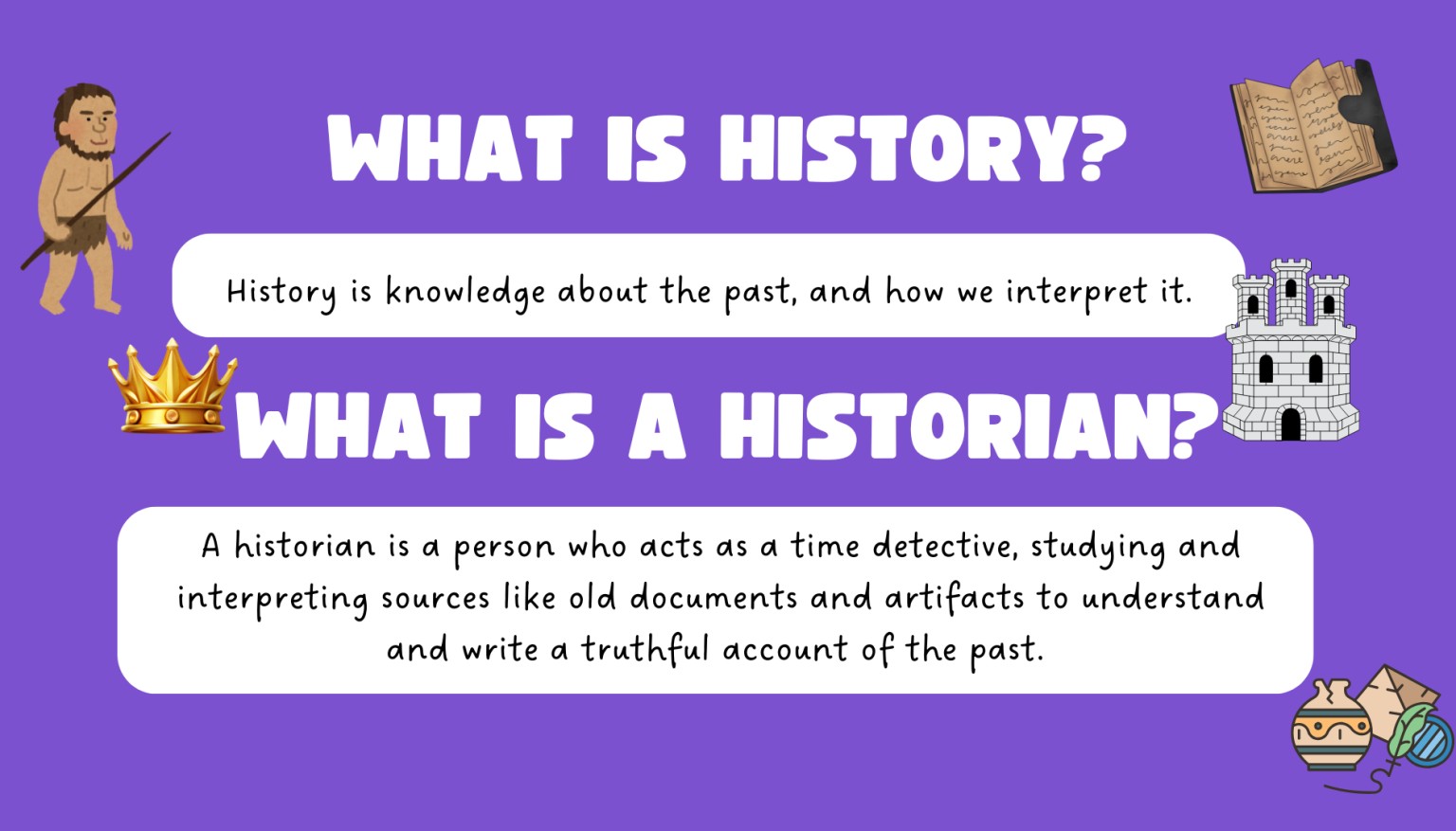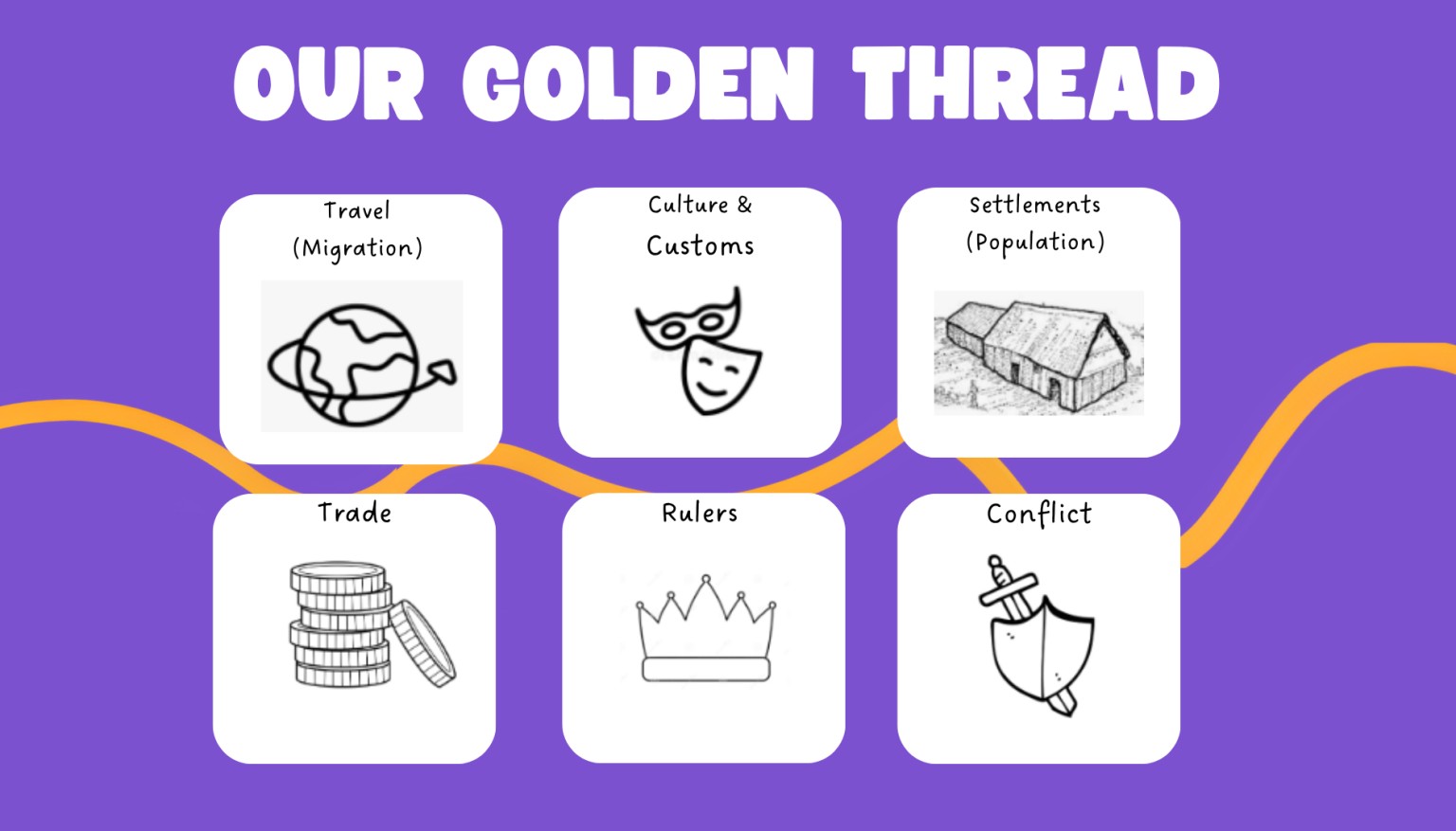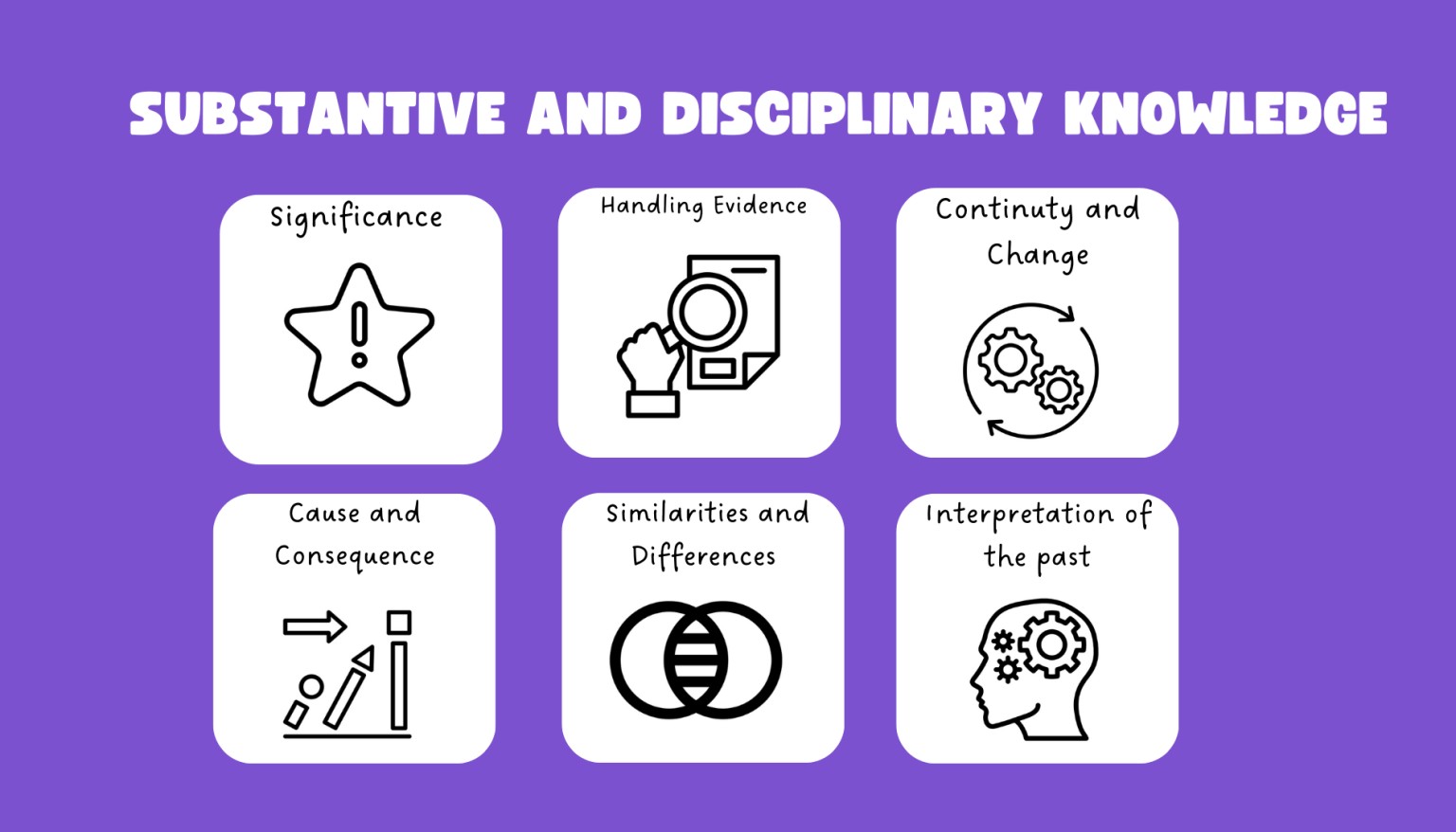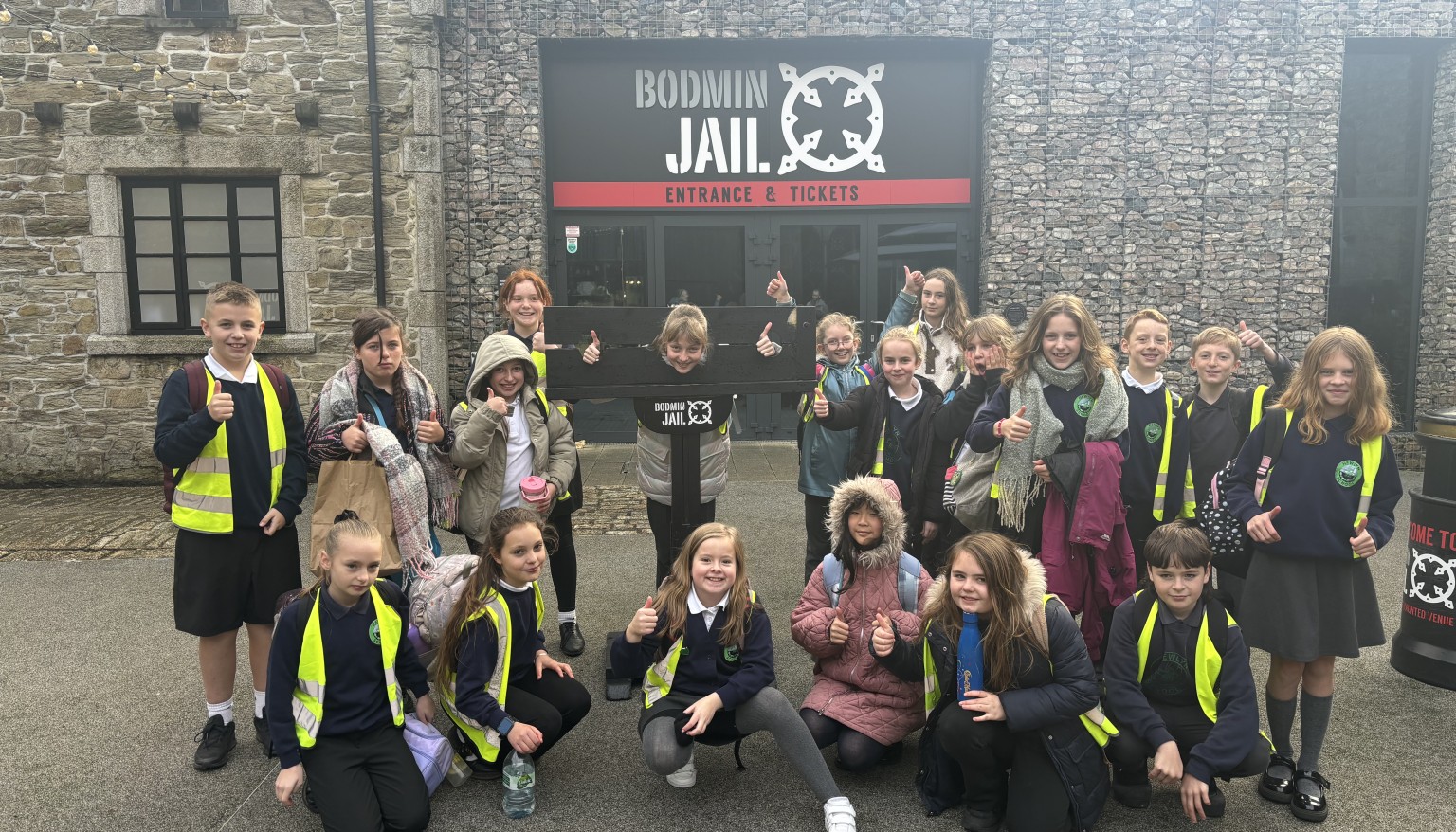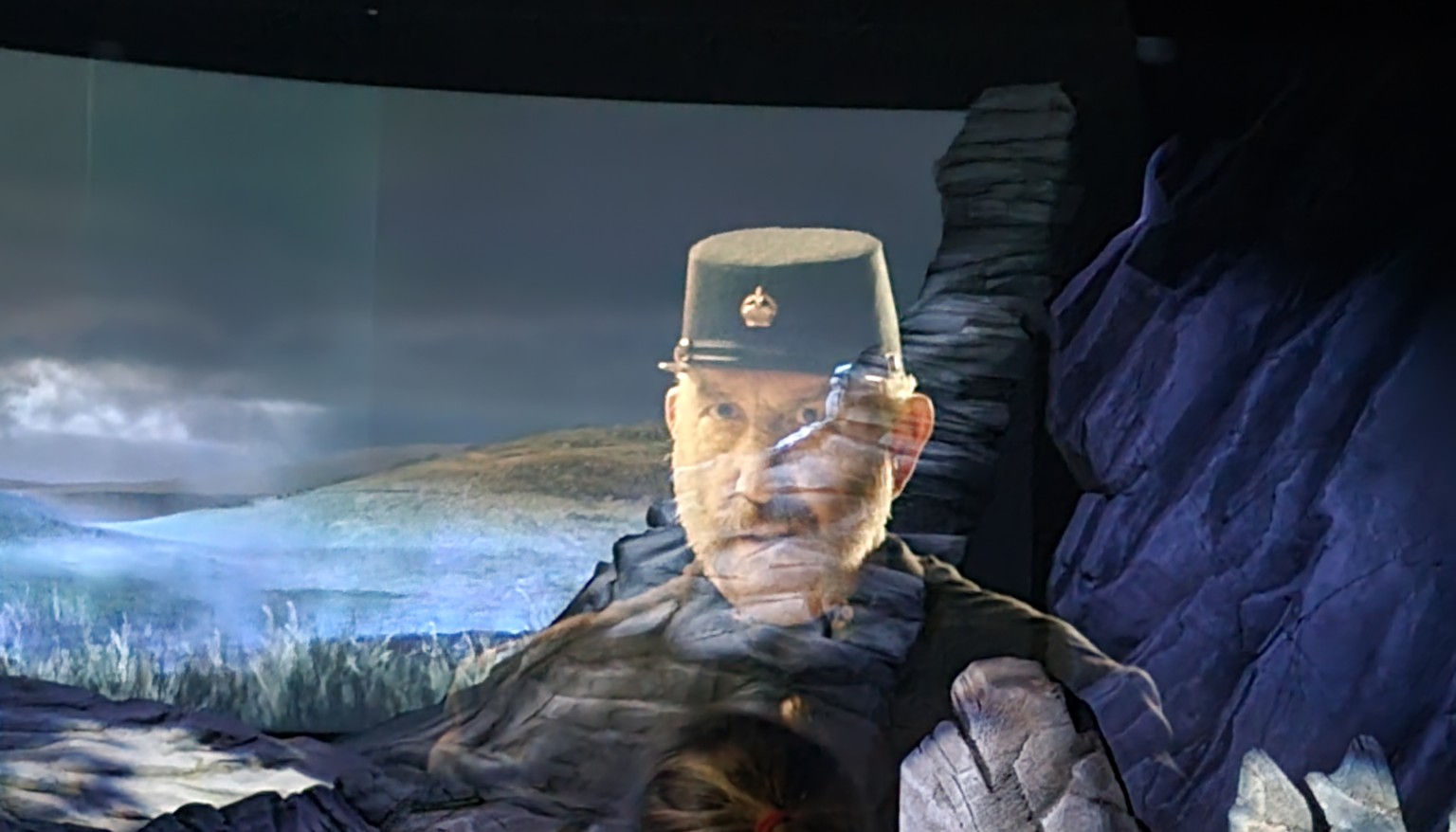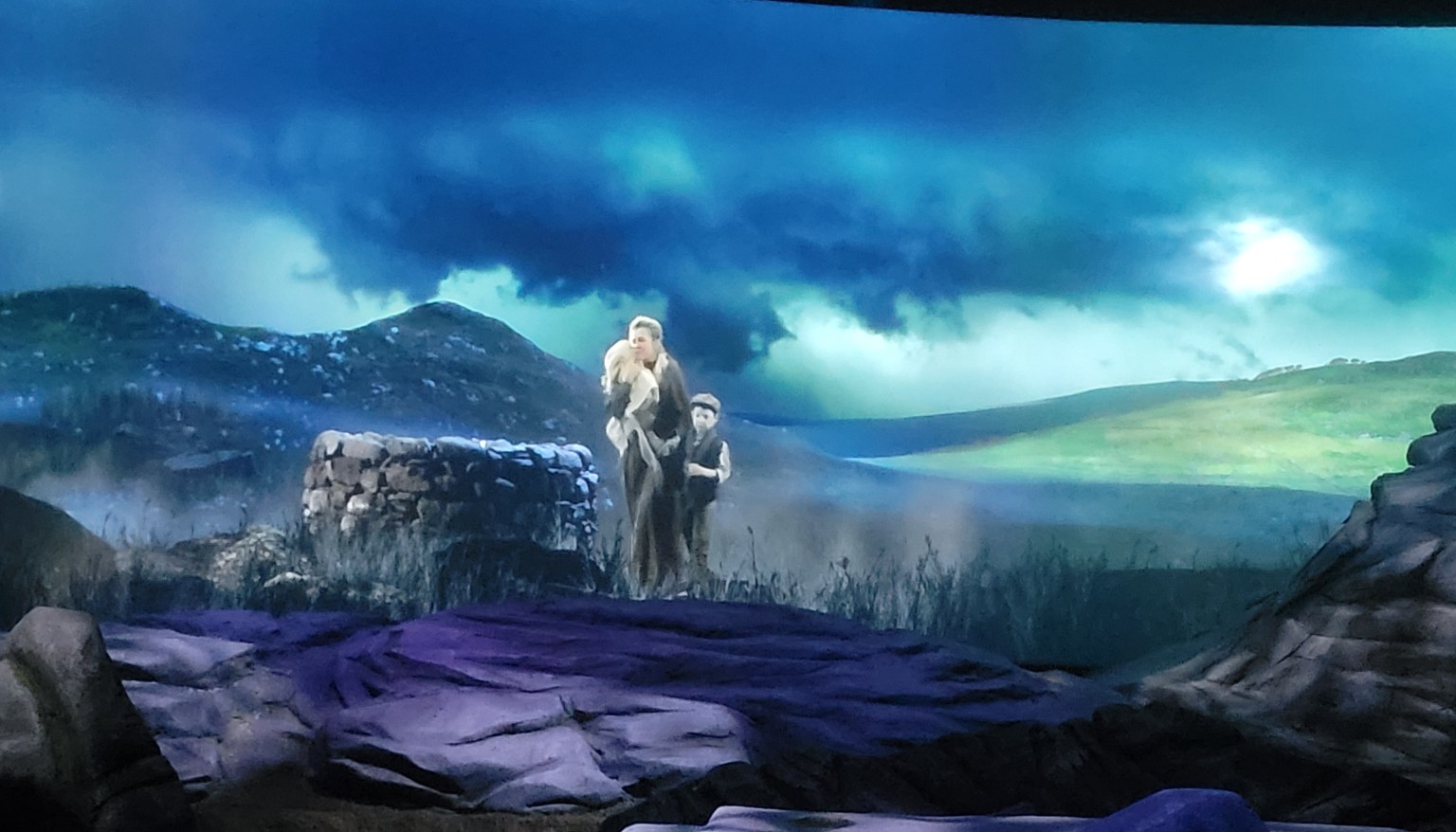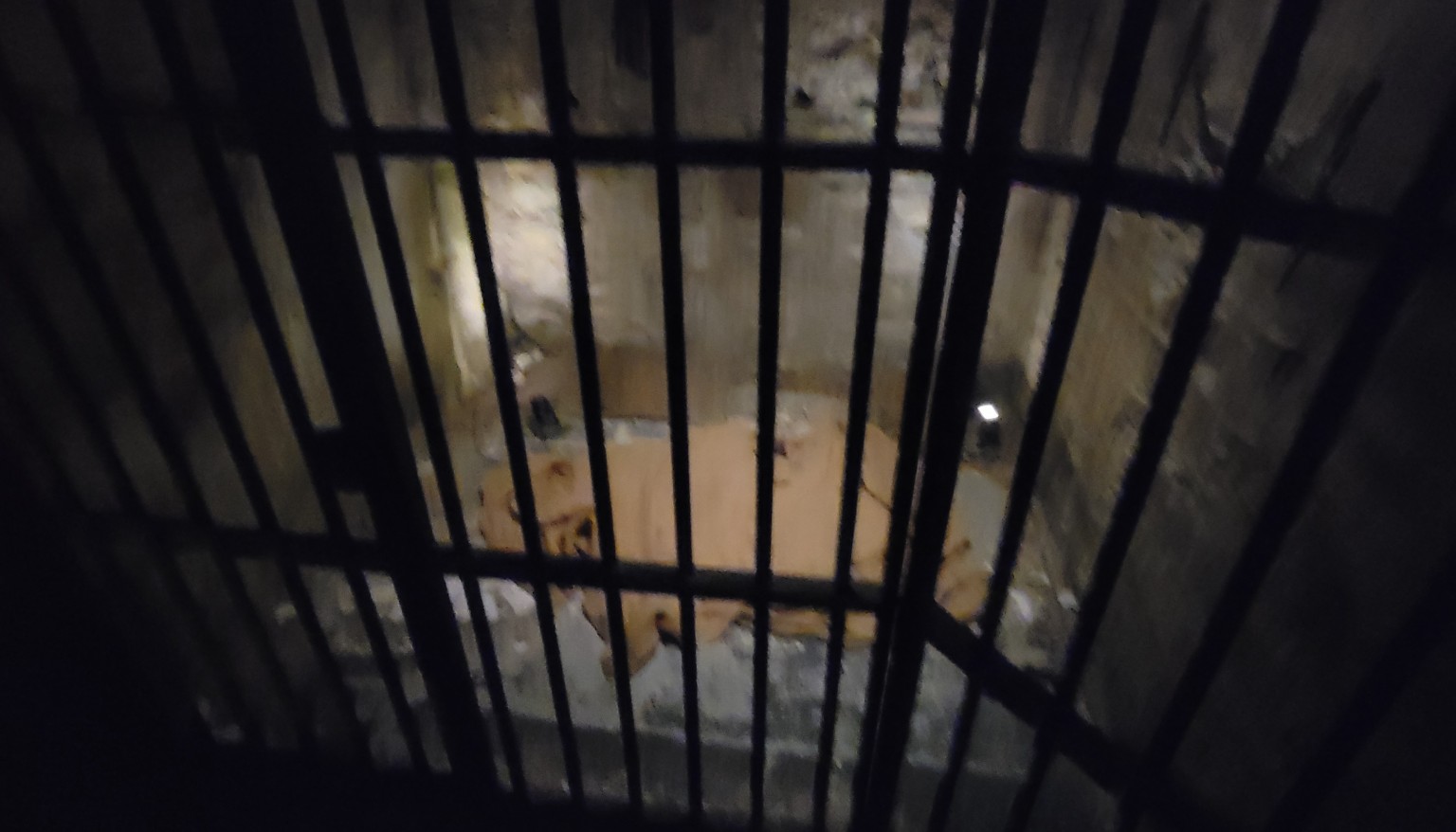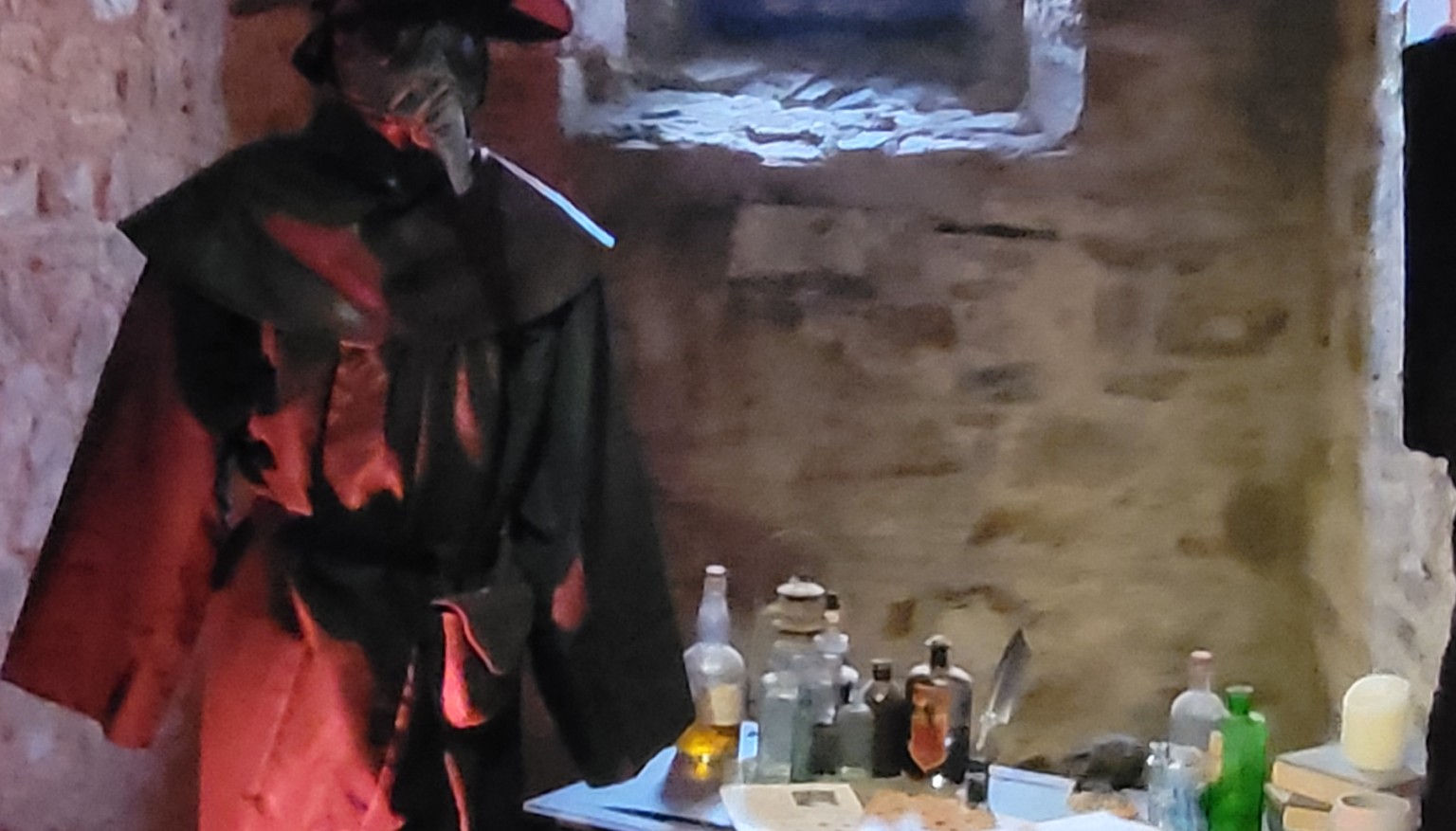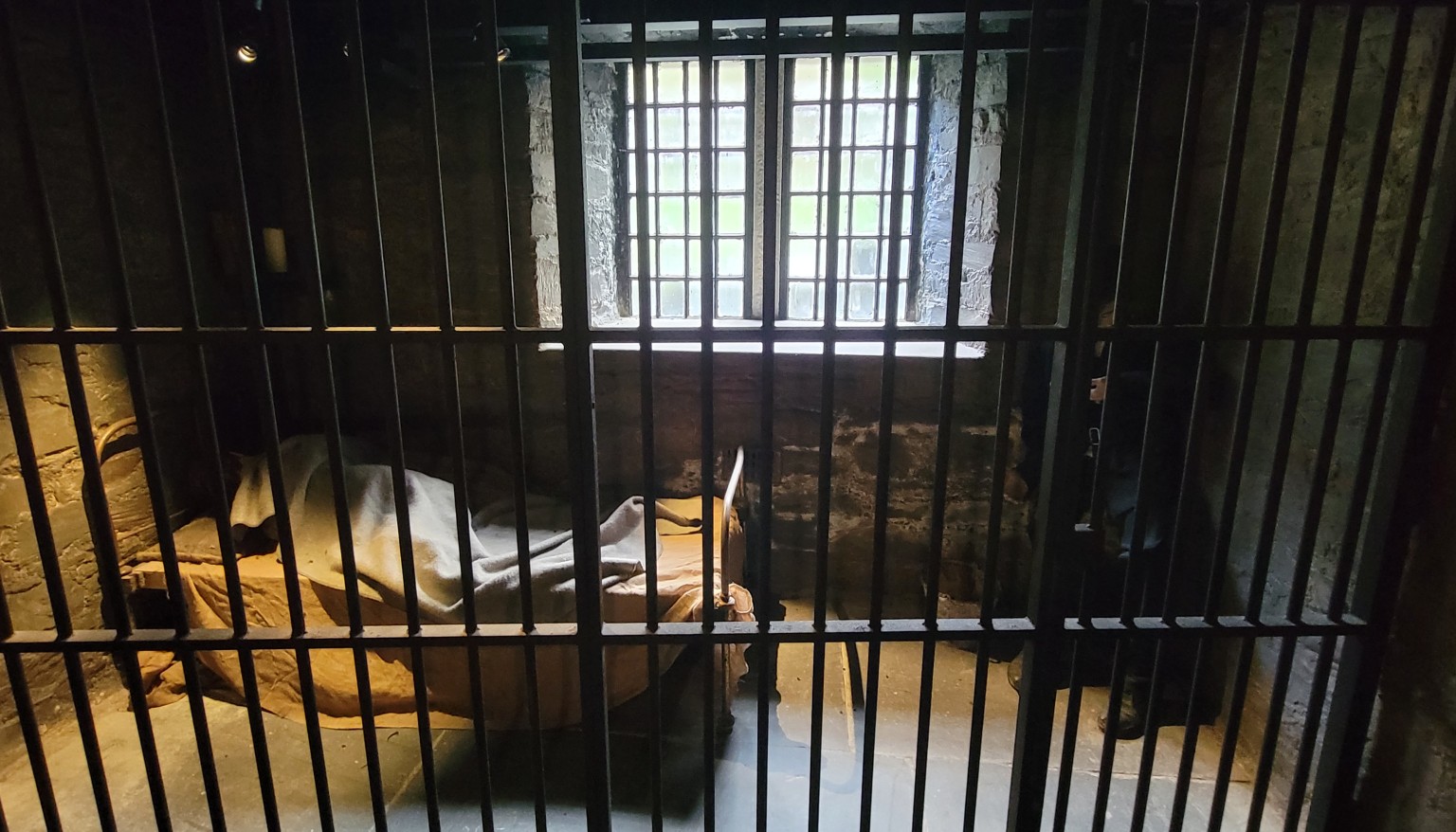“A people without a knowledge of their past history, culture and origin is like a tree without roots. “ Marcus Garvey
Our intent
At Newlyn Primary Academy, we are passionate about delivering a high-quality History curriculum that inspires curiosity about Britain's past and the wider world, and encourages children to think and talk like historians.
Through a strong focus on oracy, we empower our children to express historical ideas confidently, articulate their understanding using precise language, and develop critical thinking skills through structured discussion and debate. This process helps them to evaluate evidence and interpretations with clarity and curiosity.
Connecting Local Heritage to Skills
At Newlyn, we want children to enjoy and love learning history, not just through classroom lessons, but also through fieldwork and educational visits. We connect children with their local heritage and the broader National Curriculum through real-life experiences, such as investigating local landmarks like St. Michael's Mount or the art heritage of the Newlyn School of Artists.
These experiences help deepen their understanding of key concepts, including chronology, cause and consequence, continuity and change, and the complexity of human societies.
Curriculum Focus
Our curriculum is built on the National Curriculum but is adapted to our local circumstances and follows a clear progression:
-
Understanding Time and Self: We begin by focusing on our understanding of time and our own history.
-
Local to Global Impact: We then look out at the impact history has had on the world around us, with a focus on local sites like Newlyn.
-
Source Evaluation: Finally, we consider the way we know so much about the past and learn to question where this information has come from.
We recognise the important role that the environment and community play in shaping a child’s sense of identity. By exploring the heritage of Newlyn and Cornwall, children develop a sense of belonging and responsibility. Furthermore, through the meaningful exploration of people’s lives, children develop empathy, resilience, and respect for diversity. Our intent is to instil a life-long love of history by nurturing curiosity and giving children the confidence to explore historical questions independently.
Implementation
At Newlyn school, History is implemented through a carefully structured and progressive curriculum that enables pupils to develop a secure understanding of Britain’s past and that of the wider world. Our approach follows the Primary National Curriculum, ensuring full coverage of key historical knowledge, skills, and concepts.
History is taught through engaging termly topics, with one topic each year having a specific historical focus. Teachers plan these units to ensure that children build on prior learning, make connections between different time periods, and develop key historical enquiry skills such as questioning, interpreting evidence, and understanding cause and consequence.
Each unit of work is carefully sequenced to promote progression from EYFS through to Year 6. Early learning begins with understanding changes within living memory and talking about events from children’s own experiences. As pupils move up the school, they explore a range of historical periods and themes, developing a deeper sense of chronology and an awareness of how history shapes the present.
We use a variety of teaching approaches to bring history to life, including enquiry-led opportunities, role play, storytelling, research, artefact handling, and educational visits to historical sites. Cross-curricular links are made where appropriate—for example, using historical themes within English lessons to develop reading and writing skills, or exploring historical artefacts through art and design.
Teachers record the skills and knowledge covered within their planning to ensure clear progression across year groups. Assessment is ongoing and used to inform future planning, ensuring that all pupils are supported and challenged according to their individual needs.
Recording History Learning through Seesaw
To capture and celebrate pupils’ learning in History, we use Seesaw, a digital platform that allows children to record and reflect on their work in creative and interactive ways. Pupils document their learning through photographs, videos, voice recordings, written work, and other media, showcasing the wide range of historical skills they develop throughout the year.
Teachers use Seesaw to record evidence of learning from lessons, topic work, and cross-curricular activities. This might include examples of research, timelines, reports, artwork, or presentations about significant people and events. Seesaw also allows staff to monitor progress and ensure that knowledge and skills are built upon as pupils move through the school.
Importantly, Seesaw provides a strong link between home and school. Parents and carers can view their child’s History learning and celebrate their achievements, helping to extend curiosity and discussion about the past beyond the classroom.
By combining high-quality teaching with digital documentation, we ensure that every child’s historical learning journey is valued, visible, and continuously developed.
Impact and Assessment
The impact of our History curriculum is reflected in how well children at Newlyn develop the knowledge, skills, and understanding needed to be fully prepared for Key Stage 3 and for life as informed, reflective citizens in the wider world. Our aim is for pupils to leave Newlyn with a secure sense of chronology, strong enquiry skills, and a lifelong curiosity about the past and how it shapes our present and future.
We want children to thoroughly enjoy learning about history, encouraging them to explore new ideas and experiences both now and in the future.
Assessment in History is ongoing and woven throughout teaching and learning. Teachers continually check pupils’ understanding during lessons to ensure progress is being made and misconceptions are swiftly addressed. Feedback is given in line with the school’s Marking Policy to support reflection and improvement.
We also assess learning through the retrieval of sticky knowledge, helping pupils to recall and embed key facts and concepts over time. Summative quizzes are used to measure how well this knowledge has been retained and applied at different points in the year.
Children’s responses and learning evidence are also captured through Seesaw, where pupils record their understanding using voice notes, videos, photographs, and written reflections. This approach supports oracy development and allows teachers to capture learning in the moment, providing a rich picture of each child’s progress.
Golden Thread
At Newlyn Primary Academy, our History curriculum is woven together by a golden thread of key concepts: travel, trade, migration, conflict, custom and culture, and rulers. These interconnected themes run throughout all year groups, providing pupils with a coherent and progressive understanding of the past.
By exploring these themes, children are encouraged to think and talk like historians. They develop the skills to:
-
Investigate how travel (migration) has shaped communities and influenced the movement of people, ideas, and goods.
-
Understand the role of trade in connecting societies and shaping economies across time.
-
Examine conflict and its impact on individuals, communities, and nations.
-
Explore customs and culture, learning how beliefs, traditions, and ways of life have evolved and continue to influence the present.
- Study settlements and population, understanding how communities have grown, moved, and developed over time.
-
Analyse the influence of rulers and leadership in shaping societies and historical events.
This golden thread ensures that pupils makemeaningful connections across different historical periods, understand cause and consequence, and recognise continuity and change over time. By embedding these concepts throughout our History curriculum, we equip children with the knowledge, enquiry skills, and critical thinking needed to understand both local and global history.
Through lessons, enquiry projects, educational visits, and fieldwork, pupils see these themes come to life, fostering curiosity, empathy, and a lifelong love of learning about the past.
Substantive and Disciplinary Knowledge at Newlyn School
At Newlyn School, children develop both substantive knowledge (the facts, events, and people of the past) and disciplinary knowledge (the skills and approaches historians use). Through historical enquiry, pupils explore key concepts such as cause and consequence, continuity and change, similarity and difference, and significance, while learning to handle evidence and evaluate interpretations.
Key Historical Concepts at Newlyn School
-
Continuity and Change
Pupils examine what has changed and what has remained the same over time, building a chronological understanding of history. -
Cause and Consequence
Children investigate why events happened and consider both their short-term and long-term effects. -
Similarity and Difference
Pupils compare aspects of the past, such as people, societal roles, or individual experiences, to identify patterns and contrasts. -
Significance
Learners evaluate why certain events, people, or developments are considered important and worthy of attention.
Use of Sources
We believe that history comes alive through evidence. Lessons at Newlyn School are supported by a wide range of historical sources, enabling children to gather information and understand how different interpretations of the past can emerge. As pupils progress, they learn to question evidence and explain why historians may view the same event differently.
Children work with:
- Primary Sources – Original materials from the time, such as letters, diaries, photographs, artefacts, official documents, newspapers, maps, and oral testimonies.
- Secondary Sources – Accounts created after the event, including textbooks, documentaries, historian interpretations, and modern articles.
Progression Across the School
| EYFS | KS1 | KS2 |
| Stories, role-play, pictures, songs, and simple maps. | Stories, non-fiction texts, artefacts, paintings, photographs, and simple timelines. | Non-fiction texts, artefacts and replicas, primary sources (letters, diaries, official documents), secondary sources (textbooks, documentaries), testimony, maps, census data, newspapers, propaganda, audio recordings, and film clips. |
Autumn 2 - Y6 Trip to Bodmin Jail
SEND Adaptations in History
At Newlyn Primary Academy, we are committed to providing an inclusive History curriculum that is accessible to all pupils, including those with Special Educational Needs and Disabilities (SEND). We recognise that pupils learn in different ways and may face different barriers to learning. Our approach ensures that all children can engage meaningfully with historical enquiry, develop curiosity about the past, and experience success as historians.
Our planning and teaching reflect the four areas of need identified in the SEND Code of Practice (2015):
1. Communication and Interaction
-
We prioritise oracy in History lessons, giving pupils structured opportunities to discuss, question, and explain historical ideas.
-
Visual supports such as timelines, story maps, and artefacts help children understand and sequence events.
-
Key vocabulary is pre-taught, reinforced, and displayed with pictorial cues to support comprehension.
-
For pupils with social communication needs, adults model language for comparing, questioning, and explaining.
-
Group activities are carefully planned with clear roles and guidance, encouraging participation and confidence.
2. Cognition and Learning
-
Lessons are scaffolded to ensure all pupils can access historical concepts and skills at an appropriate level.
-
Instructions are chunked and modelled step-by-step to support understanding of complex ideas like cause and consequence.
-
Learning is reinforced through retrieval practice, visual timelines, and dual coding to help embed “sticky knowledge.”
-
Multisensory approaches, including drama, storytelling, and artefact handling, engage different learning styles.
-
Seesaw allows pupils to record understanding in different formats (voice notes, drawings, videos), reducing barriers linked to writing.
3. Social, Emotional and Mental Health (SEMH)
-
History lessons encourage reflection, empathy, and understanding of different perspectives.
-
Teachers manage discussions sensitively, particularly for challenging or emotive topics.
-
Predictable routines, clear success criteria, and positive feedback help pupils feel safe, confident, and motivated.
-
Support is available for pupils who may need help with focus, emotional regulation, or group participation.
4. Sensory and/or Physical Needs
-
Learning environments and resources are adapted as needed, e.g., using enlarged print, clear visuals, or digital tools.
-
Pupils with physical or fine motor difficulties can record work using technology, including Seesaw.
-
Hands-on, tactile experiences such as artefact handling and interactive activities make History accessible and engaging.
-
Classroom layout and seating are adjusted to support mobility or sensory requirements.
-
Staff work closely with specialists to ensure all activities, including visits, are inclusive.
Through these adaptations, every pupil can fully participate in our History curriculum, achieve meaningful progress, and enjoy learning about the past. Our inclusive approach supports confidence, curiosity, and a sense of accomplishment for all learners.

